
The answer to this question always shocks people.
I’m sure you already expect that chinchillas live far longer in captivity than they do in the wild.
And they already live surprisingly long in the wild.
But the average lifespan in captivity is incredible.
It’s also something you need to know if you are considering getting a chin as a pet. It will be living with you for a very long time.
Keep reading to learn just how long you can expect your pet chinchilla to live, along with all of the information you need to help it live a long and healthy life.
Contents
How Long Do Chinchillas Live As Pets?
Chinchillas can live for 15 to 20+ years or longer as pets with proper care, a proper diet, and a safe habitat.
In the wild, they live an average of 8 to 10 years, due to harsh conditions, hunting, and predators.
I know you are probably not asking this question because you need to know how long a chinchilla will survive in the wild.
But I wanted to provide than info anyway, to contrast against the much longer lifespan in captivity.
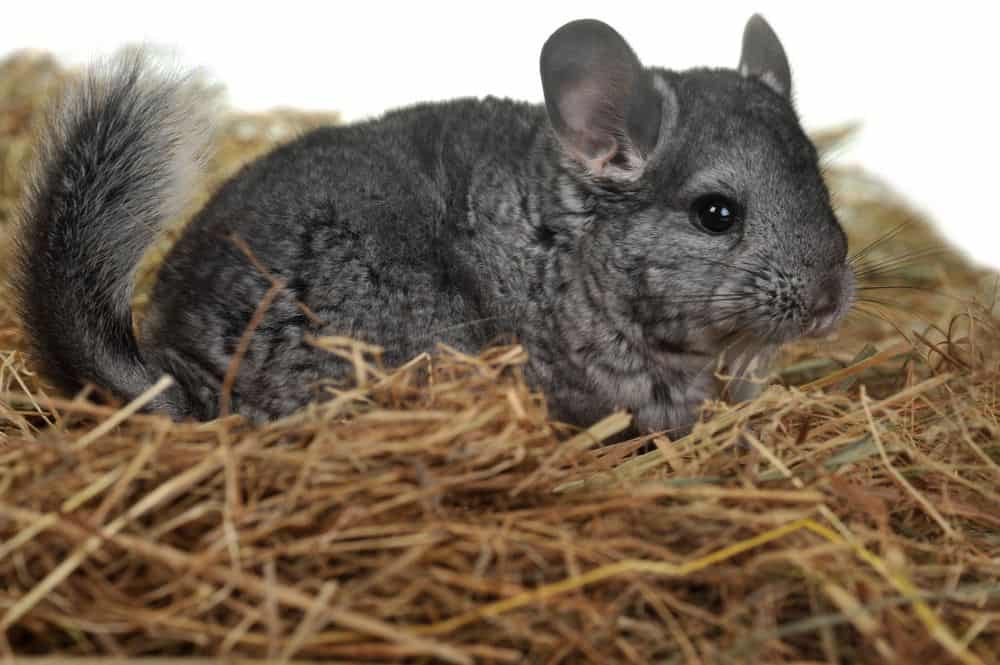
I’m sure most of you are curious, because you want to know what you can expect, if you decide to pull the trigger and adopt a chinchilla of your own.
In that case, you can expect your pet to live for 15 to 20 years. But that does assume that the conditions you provide are ideal, and you raise your chinchilla in a safe and ethical manner.
The rest of this article will go into more detail on how long chinchillas live in certain situations and also cover everything you need to know to help your chinchilla live a long and healthy life.
But before that, I want to briefly touch on the idea of comparing chinchilla years to human years. You can find a corresponding human age for a given chinchilla age (and I have some examples in that article I just linked to), but it’s really just a fun exercise. There is no science behind it.
How Long Do Chinchillas Live For In The Wild?
As stated before, there is a difference between how long a wild chinchilla vs domestic will live. This makes sense.
In the wild, the chinchilla is always vulnerable. Many predators are only too happy to make a meal of a little chinchilla, like foxes, owls, hawks, and other large cats and birds.
On top of that, they were even hunted by humans for many years, for their dense, soft coats of fur.
It reached a point where chinchillas were listed as endangered.
This is a shame considering how wonderful a pet they make. It’s even worse, because we humans are the primary reason they became endangered.
Shockingly enough, despite all the dangers, chinchillas in the wild still find ways to survive and live for an average of 8 to 10 years.
They are masters at hiding in dark places, fast on their feet, and they have incredible jumping and climbing abilities.
Don’t get me wrong. They are still no match for most other animals in the wild. But they are excellent at avoiding them.
But for those of us who have, or plan on having, chinchillas in our home, we obviously do our best to keep them safe and out of harm’s way.
If you do that, I can assure you that chinchillas do not die easily. That is why they live so much longer in captivity.
How Long Do Chinchillas Live In Captivity?
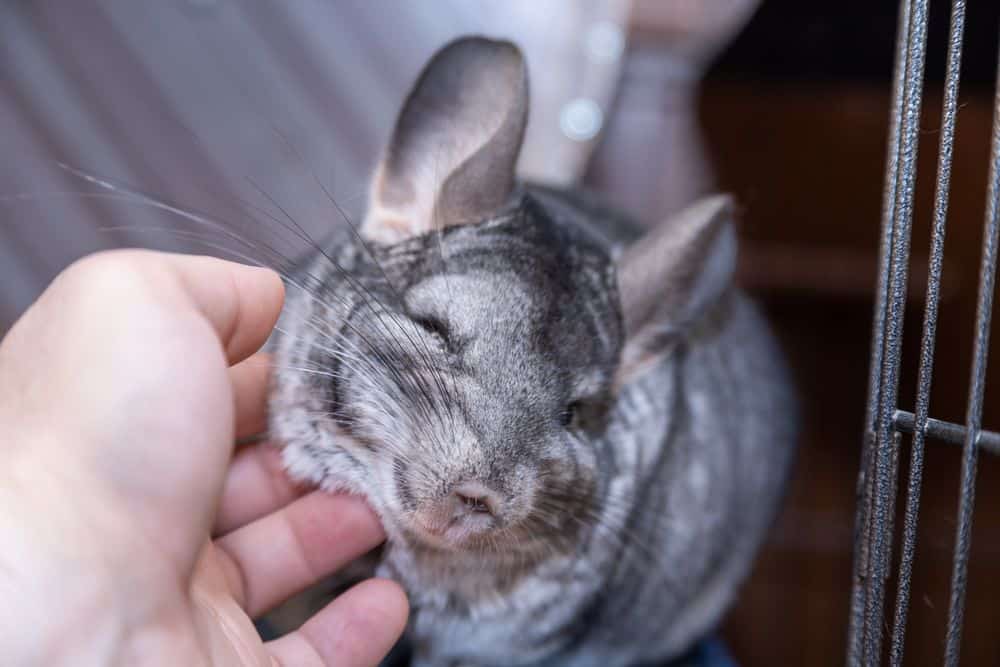
Chinchillas living in captivity is an entirely different story. They no longer face the dangers of hungry predators coming after them.
Good chinchilla owners can see their pets live more than 20 years with ease, although the median survival age of a chinchilla in captivity as a pet is between 15 and 20 years.
But, check this out. You won’t believe it.
It’s on longest recorded life span of a chinchilla in captivity is 29 years and 229 days old.
That’s almost 30 years! Pretty cool, huh?
In captivity, it is typically illness or injury that cuts these numbers short. But if you take good care of your pet, you minimize the chances of that happening. But if the unthinkable does ever happen (I suppose it is inevitable eventually), learn what to do with a dead chinchilla here.
But let’s do our best to avoid that as long as possible. To that end, we will now cover some basic precautions you can take to give your chinchilla the best possible chance of living close to the two-decade mark.
Why Chinchillas Live So Long
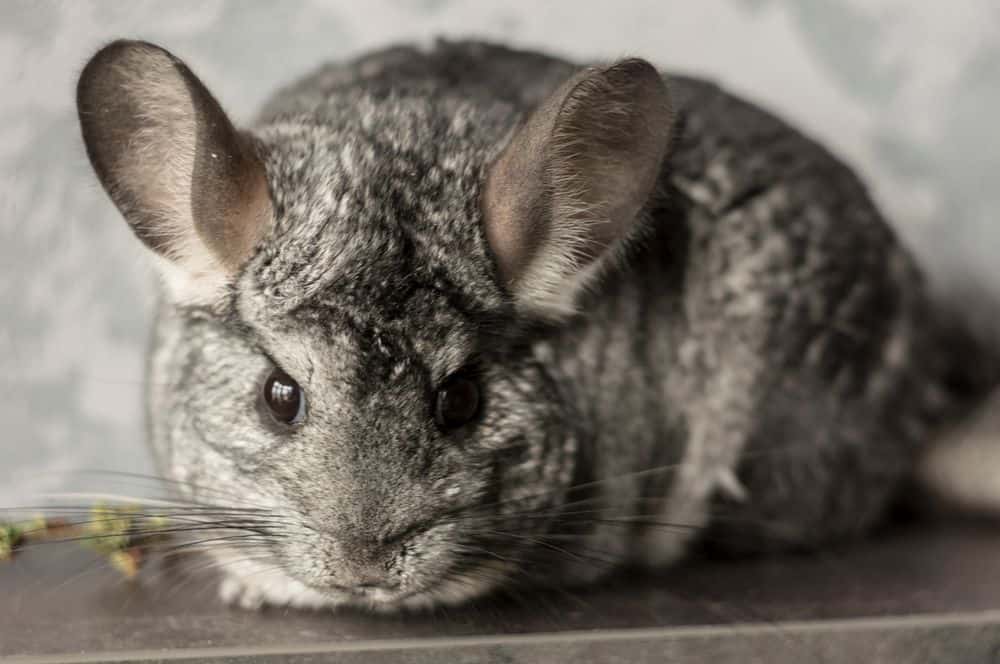
Pet chinchillas live so much longer than other rodents for a few reasons. First and foremost, they don’t have nearly as many common health concerns as other rodents.
Of course, they do still have the same common concerns any pet has. But for the most part, proper care can make a chinchilla live a very long and healthy life.
Second, chinchillas in captivity don’t need to search for food and water sources. You provide both.
Not only that, the food chinchillas consume in captivity is extremely healthy and loaded with the protein and fiber they need. At least it should be, so make sure you provide healthy food.
This should consist of around 90% timothy hay and chinchilla formulated pellets.
All of these factors, along with proper safety precautions, are what give pet chinchillas the ability to live such long and healthy lives.
In fact, they have the longest life span of any common pet rodent, handily beating out the rabbit, degu, or ferret.
Can Chinchillas Live Alone?
Yes, chinchillas can absolutely live alone. Sure, some chinchillas do better in pairs, but this isn’t always the case. And having a second chin is never necessary.
Chinchillas can thrive and survive just fine in captivity without ever living with another chinchilla. As long as they get to spend quality time bonding with you, they do not need a chinchilla friend.
I’m personally a huge fan of chinchillas, so I plan to adopt at least one more. And maybe several. But if you are on the fence about the best approach, you can 100% have your chinchilla live alone without issue.
Keys To A Long And Healthy Chinchilla Life
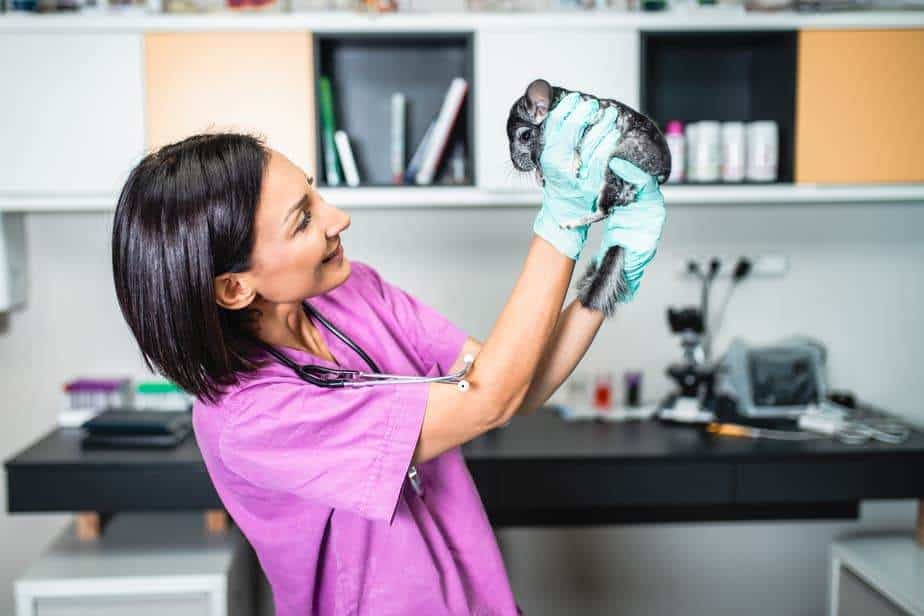
Now, you know how long a chinchilla can and should live. And you know some things you need to do to help them get there.
What else should we do to extend the lifespan and ensure they live long and healthy lives?
Is it hard to take care of a chinchilla?
Absolutely not. For a chinchilla to reach the average life span, you only need to do a few things.
First, stick to the basics and ensure your chinchilla is getting the proper diet that includes the correct chinchilla hay, the right formulated pellets (specifically designed for chinchillas, not ones made for rabbits or other pets) and constant access to clean water.
Next, remember that happiness leads to longevity. Provide your chinchilla plenty of space to act like a chinchilla and it will be happy.
This includes providing the proper size chinchilla cage. I’m a huge fan of the Critter Nation 2 Dual Level Cage. You can read my review of this cage, if you want to learn more.
I touched on this above, but it is also important to spend time with your chinchilla, especially if you only have one.
Let it out of the cage and allow it to get some social interaction. Chinchillas are social creatures and want to show affection towards their owners. Give them that opportunity, ideally every single day.
Outside of these recommendations, all you need to do is ensure you keep your chinchilla at ideal temperatures.
You can read my post about taking the necessary steps to do this here. This helps to avoid issues such as heatstroke in the future.
Also, make sure that, when your chinchilla is out for playtime, you keep the room hazard-free, which means ensuring your chinchilla can’t chew on any hazardous items such as cords or wires.
This known as chinchilla-proofing the room.
If you do these things, you’re in great shape for a long, loving, and healthy relationship with your new chinchilla.
Most Common Reasons For Chinchilla Death
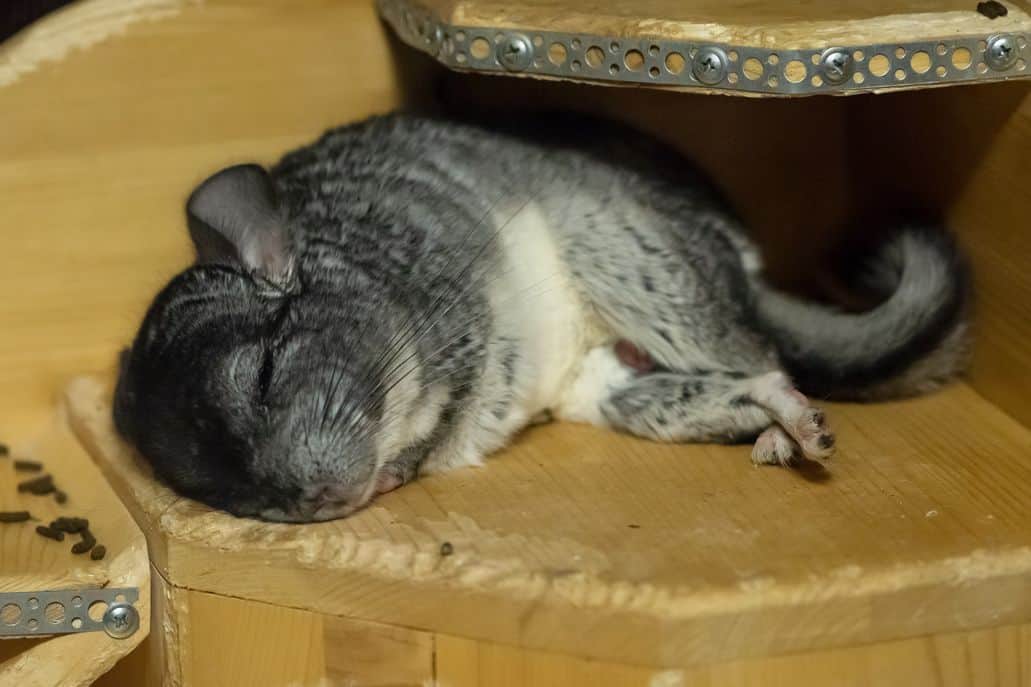
Now that you know what it takes to keep your chinchilla safe, it makes sense to also briefly discuss the most common reasons for chinchilla death.
Overheating And Non-Ideal Climate Conditions
I already referenced a post I have above discussing this topic. Chinchillas have very dense fur and need to remain at low humidity levels, in addition to proper temperatures between 60° and 74° F (16° to 23° C).
Those are the conditions they enjoy in their natural habitat in the Andes Mountains and anything much warmer and more humid can cause overheating, which can easily lead to death.
Improper Diet
Overloading on treats and not understanding the nutrition a chinchilla needs can also cause a chinchilla to die.
Cleaning Products
Chinchillas are sensitive in just about every way you can imagine. That includes incredibly sensitive digestive tracts.
Chinchillas that ingest cleaning products or detergents can die. It is vital to only use safe cleaning products or detergents to clean their cage and fleece liners (if you use them).
Dental Problems
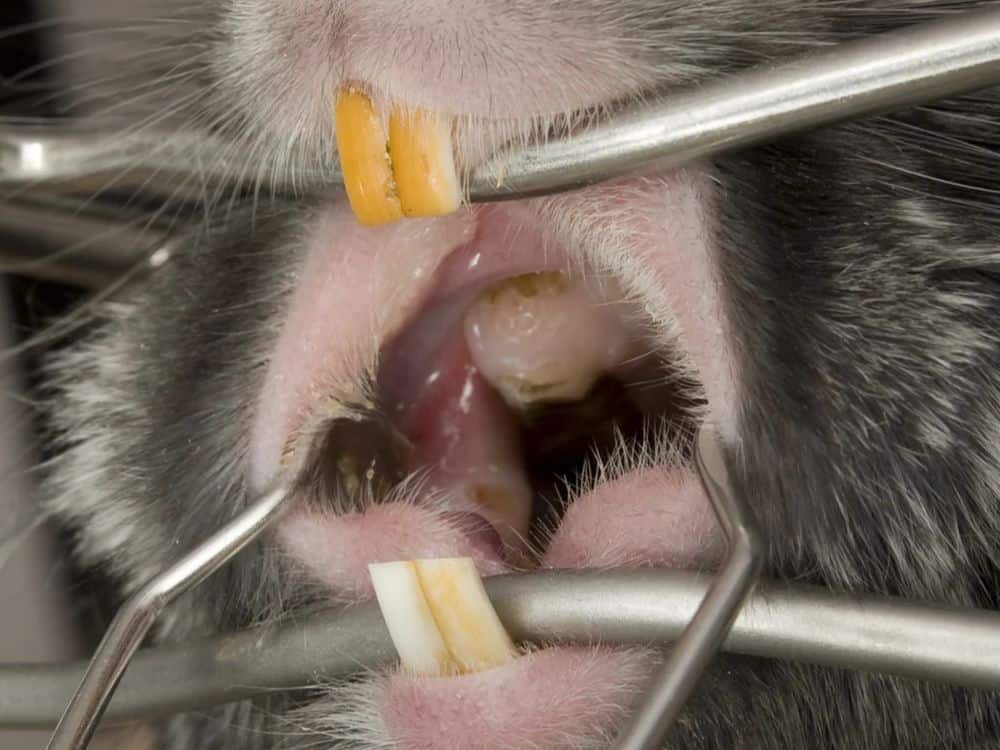
Chinchilla teeth never stop growing, so they need to grind their teeth down. Overgrown or improper growth with a chinchilla’s teeth can cause it to die from either illness or starvation.
This is due to a chinchilla’s natural reaction not to eat due to pain from the teeth and dental issues.
Weight Loss
This ties back in directly to the improper diet. You can read about how much a chinchilla should weigh here.
Make sure you always monitor your pet’s weight to ensure it is not losing or gaining too much. Always call a certified vet, if you are unsure about its weight or if you notice issues with its weight.
Illness
Illness can occur with chinchillas, just like it can with any other pets. The list of illnesses is long and can vary, but overall, be sure to look out for signs of illness, such as lack of appetite, lethargic behavior, trouble breathing, or even fur issues.
How Long Chinchillas Live: Final Thoughts
Chinchillas can live for a long time with proper care, and they are definitely a pet worth considering.
All the common issues a chinchilla could experience are nothing to worry about.
I haven’t run into any issues since adopting my chinchilla, and it’s been fantastic.
Can it happen?
Sure, it can happen to any pet.
But overall, you shouldn’t be worried about what might happen. If you take good care of your chin, you can expect it to live with you for the next 15 to 20 years.
I wish you the best of luck with your upcoming adoption.
Now it is time to hear from you!
As always, I encourage you to drop a comment and share your stories and thoughts on the topic.
Have you had a chinchilla die on you? What happened?
If it died of natural causes, how long did it live?
Do you have anything else to add to the topic at hand?
Please feel free to leave a comment below.
Chili and I appreciate you stopping by, and we will catch you next time. Thanks again!
Leave a Reply